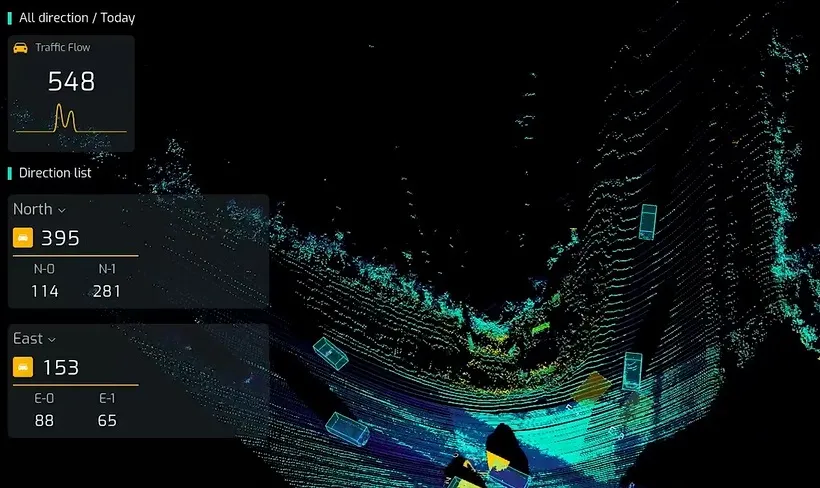NXP Semiconductors has announced it has begun testing a next-generation congestion management system in Singapore. Cars equipped with the company’s 3.5G telematics solution ATOP (automotive telematics on-board unit platform) are currently piloting this urban modern mobility solution.
July 5, 2012
Read time: 2 mins
RSS566 NXP Semiconductors has announced it has begun testing a next-generation congestion management system in Singapore. Cars equipped with the company’s 3.5G telematics solution ATOP (automotive telematics on-board unit platform) are currently piloting this urban modern mobility solution.
Singapore’s world-class infrastructure is the ideal test bed for intelligent traffic solutions as it faces the mobility challenges of today’s global megacities and aims to reduce pollution and congestion. During the Singapore trial, cars equipped with ATOP, a module allowing for cost-efficient and flexible integration into automotive electronics, will wirelessly collect real-time traffic data via 3.5G mobile broadband. This will not only test the congestion management system, but also secure payment, road-side assistance and paperless parking.
The ATOP module is the core of an on board unit (OBU) which contains a GPS receiver that collects, with optimal privacy, real-time data such as the vehicle’s exact location, and wirelessly feeds it to a back office. This allows service centres to calculate the fastest and most cost-effective route or advise drivers to choose the best means of transportation. The NXP technology can also wirelessly communicate with other cars and traffic signs to warn drivers of dangers ahead and advise on optimum speed.
3.5G communication has the bandwidth to accommodate congestion management schemes as well as other services to improve the traffic flow and road safety. In a second step, these can be complemented with car-to-car and car-to-infrastructure communication functionality. NXP says that such comprehensive mobility concepts will allow people in global megacities such as Singapore to optimally use and combine all means of transportation - including public transport, taxi, individual transport means and car sharing. A secure element is another key feature within this communication system. Financial-grade smart card technology allows for convenient and secure payment, regardless if public or individual transport.
“We are very pleased with the results of the Singapore trial so far, as it proves that NXP technologies can help alleviate congestion and help manage peak-hour traffic, ultimately helping drivers to save costs and contribute to a greener environment,” said explains Kin Wah Loh, e VP of global sales and marketing and general manager of NXP Semiconductors. “As a result of the success in Singapore, NXP is now working with governments around the world who are investing in new, smarter transportation systems.”
Singapore’s world-class infrastructure is the ideal test bed for intelligent traffic solutions as it faces the mobility challenges of today’s global megacities and aims to reduce pollution and congestion. During the Singapore trial, cars equipped with ATOP, a module allowing for cost-efficient and flexible integration into automotive electronics, will wirelessly collect real-time traffic data via 3.5G mobile broadband. This will not only test the congestion management system, but also secure payment, road-side assistance and paperless parking.
The ATOP module is the core of an on board unit (OBU) which contains a GPS receiver that collects, with optimal privacy, real-time data such as the vehicle’s exact location, and wirelessly feeds it to a back office. This allows service centres to calculate the fastest and most cost-effective route or advise drivers to choose the best means of transportation. The NXP technology can also wirelessly communicate with other cars and traffic signs to warn drivers of dangers ahead and advise on optimum speed.
3.5G communication has the bandwidth to accommodate congestion management schemes as well as other services to improve the traffic flow and road safety. In a second step, these can be complemented with car-to-car and car-to-infrastructure communication functionality. NXP says that such comprehensive mobility concepts will allow people in global megacities such as Singapore to optimally use and combine all means of transportation - including public transport, taxi, individual transport means and car sharing. A secure element is another key feature within this communication system. Financial-grade smart card technology allows for convenient and secure payment, regardless if public or individual transport.
“We are very pleased with the results of the Singapore trial so far, as it proves that NXP technologies can help alleviate congestion and help manage peak-hour traffic, ultimately helping drivers to save costs and contribute to a greener environment,” said explains Kin Wah Loh, e VP of global sales and marketing and general manager of NXP Semiconductors. “As a result of the success in Singapore, NXP is now working with governments around the world who are investing in new, smarter transportation systems.”








